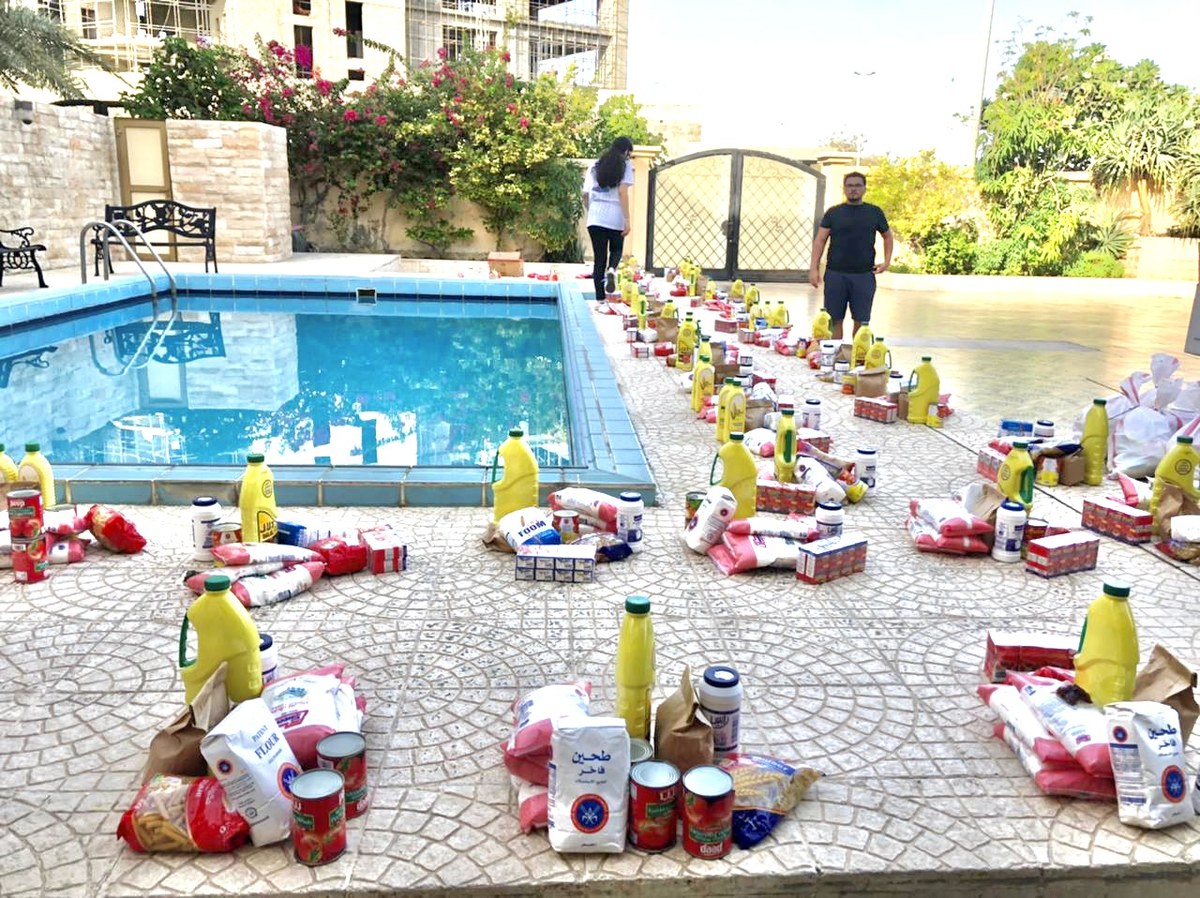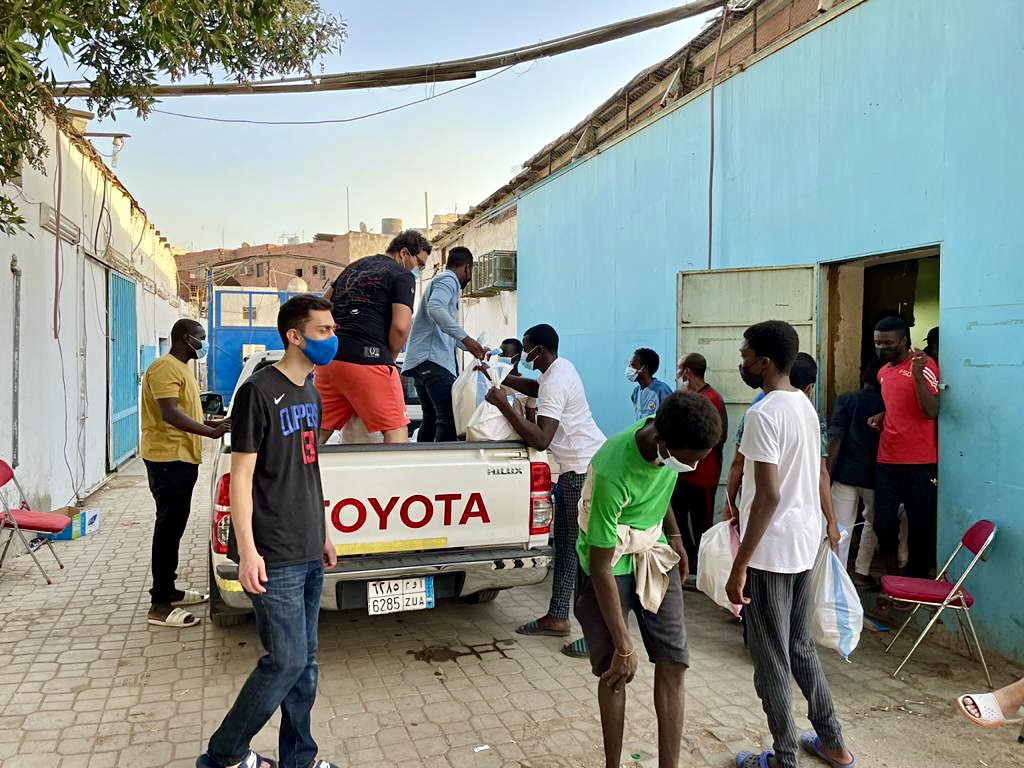JEDDAH: With Ramadan drawing to a close, a family and friends charity celebrated the success of their ninth consecutive year in operation ahead of Eid festivities.
Abdulmajeed Hashem, the 25-year-old founder of Jeddah-based charity Khair for All, told Arab News about how his family and friends played their part in giving and lending a helping hand this holy month.
Whilst endeavoring to get involved in the spirit of Ramadan aged 16, the Jeddah-born Hashem discovered that local charities in his area had too many volunteers. However, he knew that there was no cap on good that can be done — so he founded his own charity.
Khair, the Arabic term for good, well-being, blessings and benevolence, was the operative word founder Hashem chose for Khair for All.
“We started in about 2012 with a small group of my cousins and friends. We decided to start by giving out meals for Iftar Sayim,” Hashem told Arab News.
Iftar Sayim is the charitable act of providing ready meals, usually dates, water, laban and a sambosa, to Muslims in Ramadan for them to break their fasts with.

One month worth of essential food items laid out in batches ahead of packaging and distributing. (Zeina Sweidan)
“That simple beginning turned into something that grew in size, in number of volunteers, in effort — we just kind of started from there and it naturally grew.”
Hashem and his team purchased Iftar Sayim meals using their own money and began distributing them in the suburbs of Jeddah — soon they found themselves in a daily routine they could not do without.
“Meeting here everyday, setting up the packs and distributing them ourselves has really been a bonding experience with our group,” he said. “We really enjoy this activity — it’s become a part of our Ramadan that’s very important to us.”

A less fortunate suburb in Jeddah receiving Khair for All monthly packages. (Hussain Abedi)
The global health crisis did not stand in the way of the charity’s vision for 2021, and while adjustments had to be made and precautions taken, they swiftly adapted and made the necessary changes for another successful Ramadan.
Saudi Arabia’s Vision 2030 has played a role in getting the youth moving, according to the Khair for All founder. “I feel like with the new direction a lot more of my friends have been more willing to volunteer,” he said. “More people are ready to go and take on these projects.
“I’ve definitely noticed an increase in enthusiasm and energy in the past few years, and I think it’s very much linked to the direction of the country.”
Khair for All sets no limits on where and how it can be of service, and so ventured into more sustainable projects in which their effects will be seen in the years to come.
While Iftar Sayim is the basis for why Khair for All began, in 2014 Hashem and his team discovered that there were more ways to help the community than to simply help break their fasts.

Khair for All volunteer stuffing monthly packs of essential food items into the back of his car just before the Maghreb prayer — the time in which Muslims break their fasts. (AN/Zaid Khashogji)
“We later shifted to giving monthly packs,” the Khair for All founder said. “We kind of understood that families needed something more stable, something that would make them not have to worry about where their food was coming in for the next month.”
Since then, packaging monthly supplies consisting of basic goods and necessities has become the primary activity of the charity — and they soon found themselves working with local schools.
“We like to have more of a lasting impact in the places we’re helping out, rather than just providing a meal and then going back home,” Hashem said. “We want to provide something to the communities that we can see grow ourselves, so we’re really focusing a lot on education.”
Hashem and the team began pooling money together each year to improve the state of impoverished schools in Jeddah.
“Vision 2030 emphasizes a lot of the power the youth can have,” he said. “We believe any way we can make the schools a better learning environment for the kids would be a way of having a more lasting impact.
“We do a lot of work getting new chairs, painting and providing internet — and I hope we can continue to do more things like that in the future.”
Hashem believes that more direct communication with people in the community is necessary to address the real underlying issues, rather than just basing measures on assumptions.
“Basically, put our energy into what they tell us they need,” he said. “Talk to everyone there, and get to know them really well — that way, it’s addressing actual problems.”



































